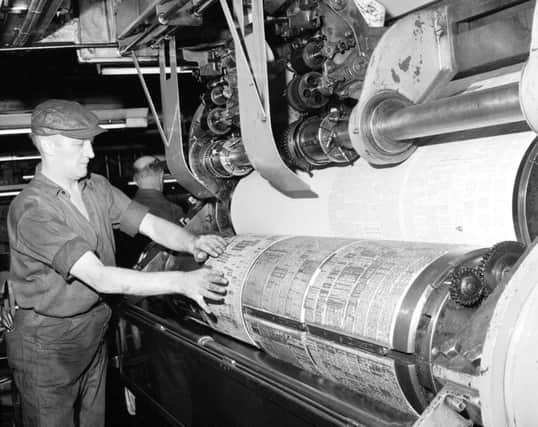John McLellan: what will artificial intelligence do to the news industry?


Do a “Google search” and almost always the first screen has stories from news organisations that rely on advertising revenue which is instead going to the search engine itself.
News UK chief operating officer David Dinsmore recently called for “a fair exchange” from Google and Facebook, and Google will point to the slew of news research projects it supports, the most recent of which were announced last week.
Advertisement
Hide AdAdvertisement
Hide AdThe most controversial is the £600,000 it is paying the Press Association to develop an automated system to generate 30,000 local news stories a month from government and council data to an agreed template. PA editor-in-chief Peter Clifton says it is a potential game-changer for local media, and it’s not difficult to see why.
Although Clifton says there will still be human intervention, it’s not clear at what points it will come. Presumably someone will have to create the story templates, although how a machine will write an intro which encapsulates the strongest news line in 30 words is hard for a mere human brain to envisage. But let’s say it’s possible, so what happens after that? Will an editor feed selected raw material through a programme so stories magically appear, or will he or she just be at the other end of the sausage machine to decide what is newsworthy? Or somewhere in between, or not at all, who knows.
The financial justification of such automation programmes is the limitation of interference and for some publishers it will represent a means of cutting what is their biggest remaining human cost. Most pages in the regional press already follow templated designs but until now there has been no way to template the content.
For many years PA has produced standard pages for services like TV and racing which don’t need local input, and also templated pages using customer’s copy, but if successful this could allow them to produce pages which don’t need the client’s reporters to supply material or editors to choose the subjects. A publisher could simply contract PA to supply news pages which are sent straight to the printing plant ready to go with stories supposedly relevant to the area, all unseen by a local eye.
Maybe there is a market for the journalistic equivalent of Stephen Hawking’s voice generator, but a glance at comment streams shows readers still expect a selection and editing process behind what they see. So if robot reporters are the future, it might be news, Jim, but not as we know it.
- John McLellan is director of the Scottish Newspaper Society and a City of Edinburgh Conservative councillor